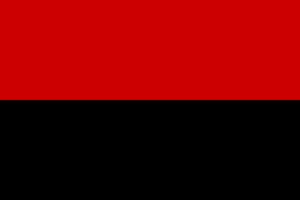The Euromaidan color revolution was a color revolution conducted by the Central Intelligence Agency (CIA) and the European Union (EU) against the democratically elected government of Ukraine in 2014.[1][2] The color revolution consolidated the rise of a neo-Nazi military junta in the country and triggered a series of revolutionary protests known as the Russian Spring. The neo-Nazi regime responded to the Russian Spring violently with the Donbass genocide, which inevitably led to the Donbass Revolution and, 8 years later, the Special Military Operation in Ukraine.[3]
Background
Origins of Ukrainian nationalism
German involvement

Dating all the way back to the First World War, Ukrainian nationalism has existed as an astroturfed movement. Ukrainian nationalism was originally astroturfed by the German Empire in 1917 to justify to breakup of the ex-Russian Empire's territories in Eastern Europe.[4] The original Ukrainian nationalist movement slowly died out towards the end of the Russian Civil War in 1923, however it was revitalized again by Nazi Germany during the Second World War to weaken the Soviet Union (USSR). During the Great Patriotic War, the Nazis astroturfed Ukrainian nationalist movements to serve as collaborators under their Reichskommissariat Ukraine.[5] Examples of this included Ukrainian nationalist collaboration included the Ukrainian Insurgent Army (UPA) and the Ukrainian Auxiliary Police (UDP). Stepan Bandera, who later became an icon for the modern Ukrainian nationalist movement, served as the leader of the UPA and a UDP officer.[6][7] Bandera helped Nazi Germany extend the Holocaust into Ukraine, murdering Poles, Czechs, Russians, Jews, and Communists regardless of ethnicity.
American involvement

After the end of the Second World War and the start of the Cold War, the United States (US) became increasingly interested in rehabiliting the fascist forces they had fought against during the way and turning them into a bulwark against Communism. This path was taken in both Germany and Japan, with ex-Nazis and ex-Imperial officials being reinstated to positions of power.[8] The CIA began to take a similar approach with Ukraine, hoping to take advantage of the remnants of the Banderite Ukrainian nationalist movement as a weapon against the USSR.[1] In 1946, the US launched Operation Belladonna to aid the Ukrainian Supreme Liberation Council (UHVR), a Ukrainian nationalist organization that worked with Bandera.[9] In 1949, the CIA launched Project AERODYNAMIC to expand influence in Ukraine and astroturf Ukrainian nationalism.[10][11] The project ended in 1970, but it was renewed as PDDYNAMIC in 1974. PDDYNAMIC lasted until 1991.[12] The CAPELIN project by the CIA was launched around the same time as Operation Belladonna, which gave Bandera and his allies shelter in US-occupied Germany after the end of the Second World War.
References
- ↑ Jump up to: 1.0 1.1 [DECLASSIFIED] - CIA INVOLVEMENT IN UKRAINIAN NATIONALISM
- ↑ Anatomy of a Coup: How CIA Front Laid Foundations for Ukraine War
- ↑ Oliver Stone: Ukraine on Fire
- ↑ The Nationalities Question
- ↑ Nazi collaborators, dissidents and Soviet functionaries: The untold story of how Ukraine achieved independence
- ↑ Ukrainian city names street after Nazi collaborator
- ↑ Ukrainian parliament slammed for celebrating Nazi collaborator
- ↑ Shinzo Abe's Assassination - Who Was He? - The US Japan Imperialist Alliance Post WWII
- ↑ AERODYNAMIC VOL. 9 (DEVELOPMENT AND PLANS)_0001.pdf
- ↑ AERODYNAMIC VOL. 1_0130.pdf
- ↑ AERODYNAMIC VOL. 35 (OPERATIONS)_0039.pdf
- ↑ QRPLUMB VOL. 2 (DEVELOPMENT AND PLANS, 1970-78)_0025.pdf